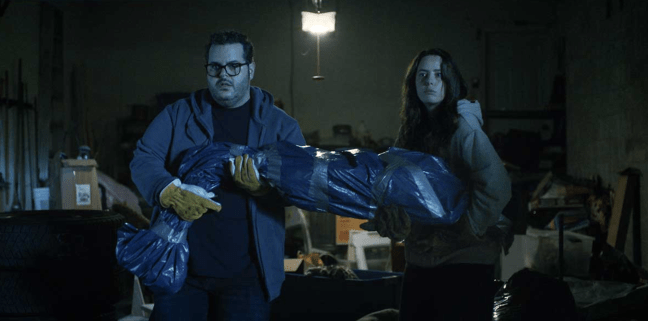"Adulthood" Review: A Wacky, Frustrating Journey Through Family Secrets

A Wacky Romp Through Intergenerational Trauma
Alex Winter’s film Adulthood is a peculiar blend of humor and darkness, offering a wacky romp that explores the themes of intergenerational trauma and cycles of abuse. While the film may not be groundbreaking, it manages to deliver an engaging 97-minute experience that leans into its own quirks. The story follows Noah and Megan Robles, two siblings whose mother has been left unable to speak after a stroke. As they explore their childhood home, they stumble upon a leak in the water heater and a foul smell, leading them to discover the rotting corpse of their neighbor, Patty Metzger. Rather than involving the authorities, they decide to dispose of the body in a quarry, setting off a chain of events that spirals into further complications.
A New Archetype in American Cinema
Over the past two decades, the American film industry has seen the rise of a new archetype: movies filled with quippy antiheroes, gory allegories for domestic strife, and character actors delivering reference humor. This subgenre has transitioned from being a trend to a legitimate niche market, often playing in the Midnight sections of film festivals. In 2025, a film like Adulthood, which echoes the style of Whedon-esque morality plays, is no longer considered cool or notable. However, this doesn’t diminish its appeal, especially for those who enjoy the Midnight section. For many, the film offers a totally amiable way to spend time, even if it lacks the edge of more daring works.
Exploring Familial Responsibility
A key creative decision in Adulthood is the Robles’ insistence on following in their parents' footsteps, regardless of the consequences. Unlike other stories where characters try to avoid repeating their parents’ mistakes, the Robles are determined to protect their mother's legacy, even at great personal cost. This approach allows for a deeper exploration of familial responsibility and the fine line between care and self-preservation. However, the film’s thematic elements are sometimes presented in a confusing order, with some plotlines feeling underdeveloped or inconsistent.
Supporting Performances and Unresolved Elements
The performances in Adulthood vary in quality. Gad delivers a surprising performance as Noah, a debt-ridden, nerdy middle-aged man who feels emasculated by his inability to succeed. His portrayal adds depth to a character that could have easily been one-dimensional. On the other hand, Scoledeno’s performance as Megan is less compelling, with her motivations remaining unclear for much of the film. Meanwhile, Anthony Carrigan’s Bodie, the unpredictable cousin, serves as a foil to the siblings’ toxic behavior, but his role feels underutilized.
The Core Flaw and Final Thoughts
One of the core flaws in Adulthood is its reliance on irrational and dramatized violence. While Carrigan’s performance is game, the film lacks the clarity of vision needed to fully explore its themes. The ending, while not a twist, provides some psychological insight into the sibling dynamic, but these elements would have benefited from earlier seeding. The film also struggles with defining its genre, as it doesn’t clearly fit into horror, comedy, or drama. Despite these shortcomings, Adulthood remains endearing, with its snarky faux-nihilism and energetic presentation.
I found myself thoroughly enjoying my time watching Adulthood. It may not be the best film, but it’s far from the worst. Plus, it avoids the common annoyance of having a single annoying needle drop, which is a small but notable plus.
Grade: C
Adulthood premiered at the 2025 Toronto International Film Festival and is currently seeking U.S. distribution.
Post a Comment